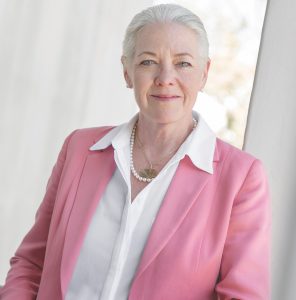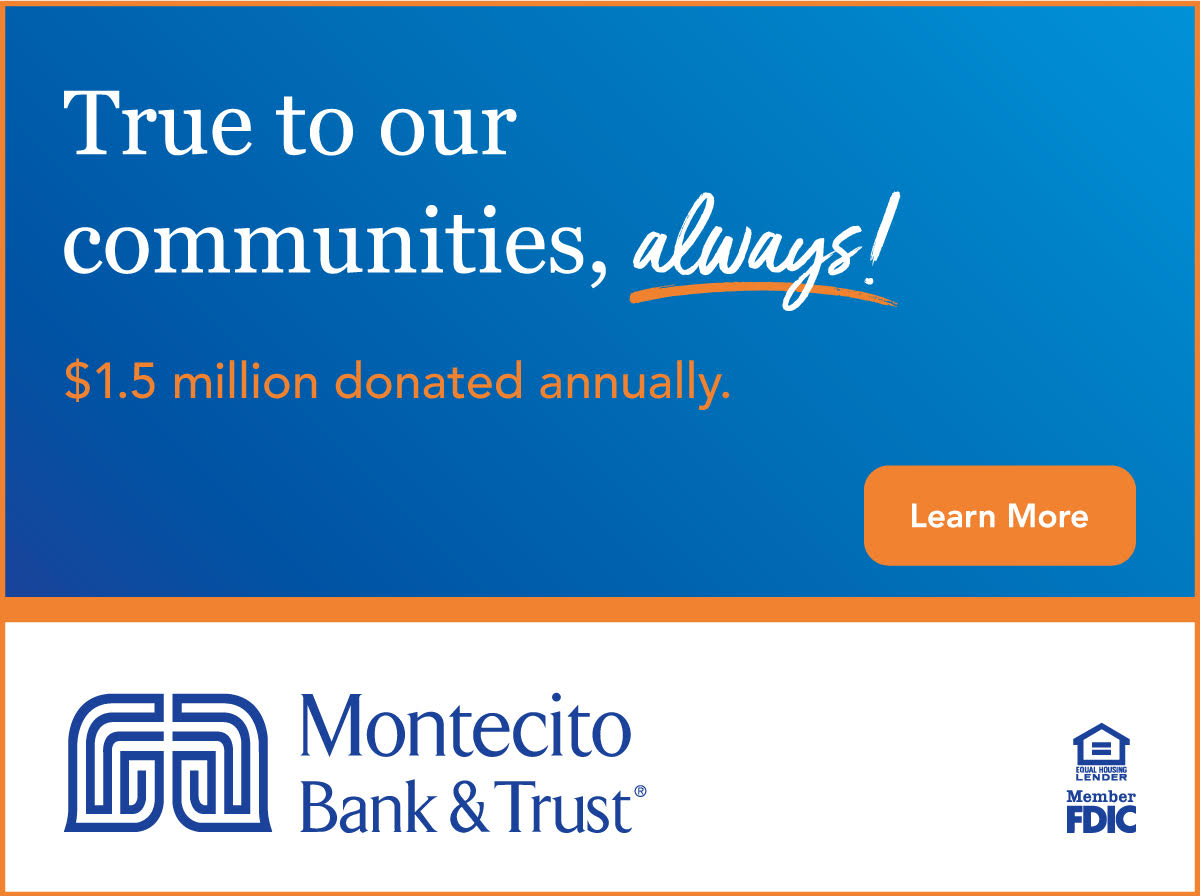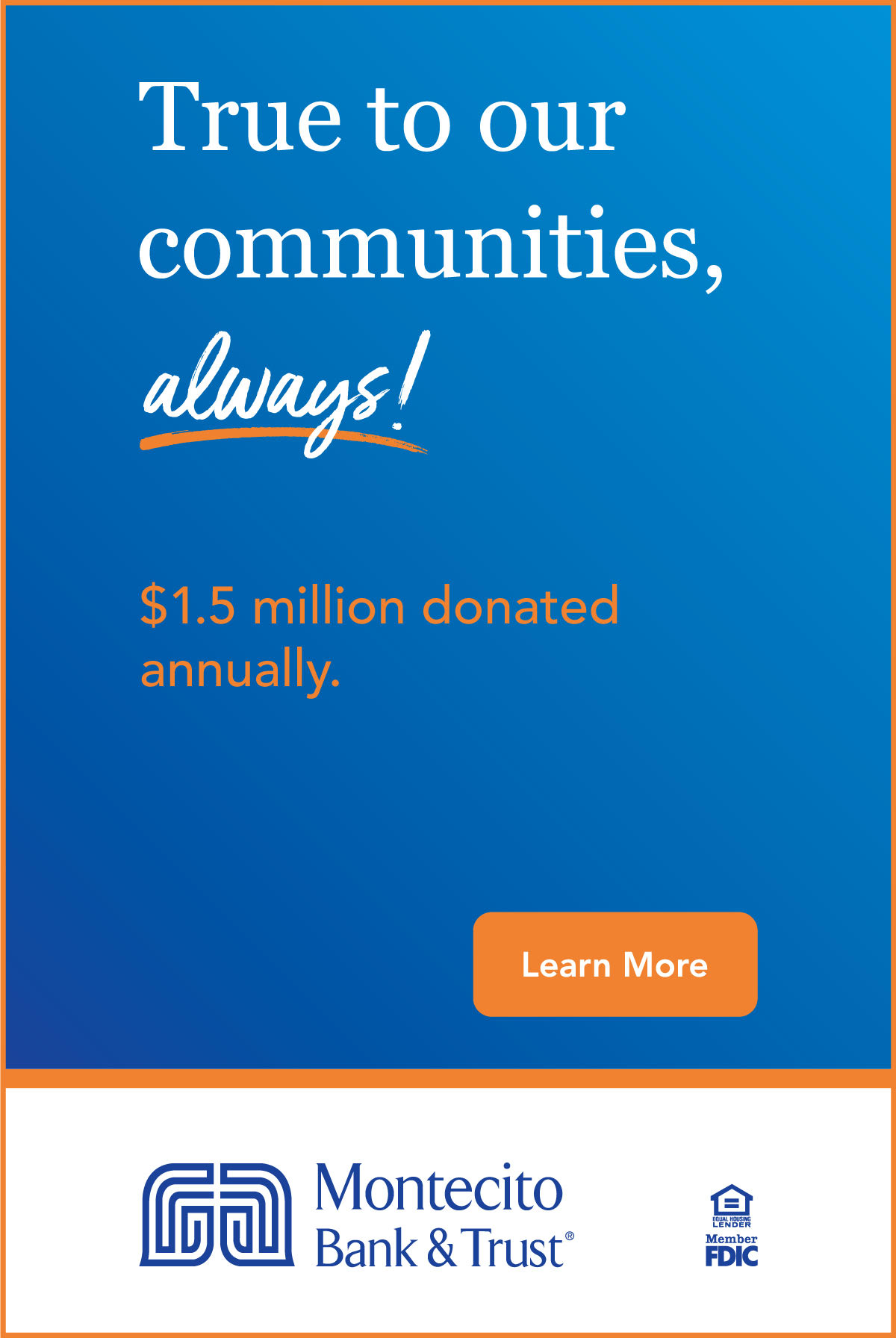Wendy Eley Jackson: Writing a New Story for Philanthropy and Social Change
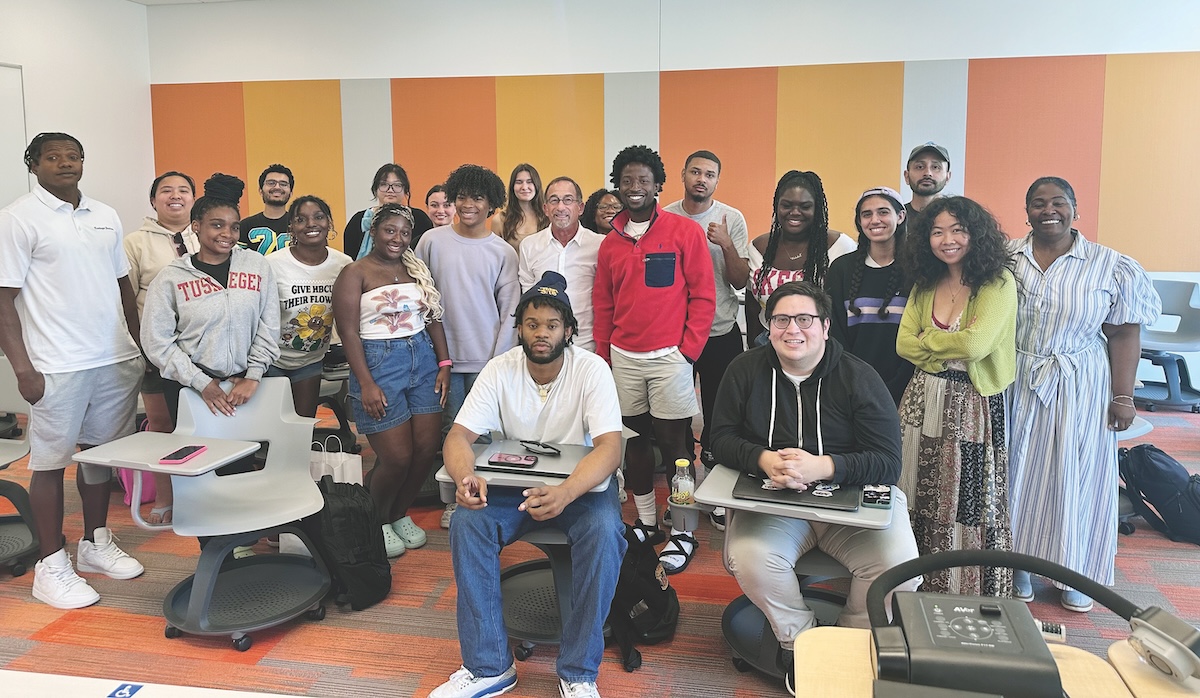
Before signing on as a lecturer in the film department at UCSB in 2019, Atlanta native Wendy Eley Jackson spent more than 30 years in the TV and film industry. Her experience in the entertainment industry encompassed writing “coverage” for The Long Island Lolita at TriStar/Columbia Pictures Television to developing made-for-television movies, working in advertising and marketing with Turner Broadcasting, to developing TV pilots for major studios and networks. More recently, Jackson formed Auburn Avenue Films – named for the area that was the commercial center of Black Atlanta a century ago – with her husband, Maynard Holbrook Jackson III, the son of the first Black mayor of Atlanta. (The two have known each other since the first grade, but didn’t get together until much later in adulthood.)
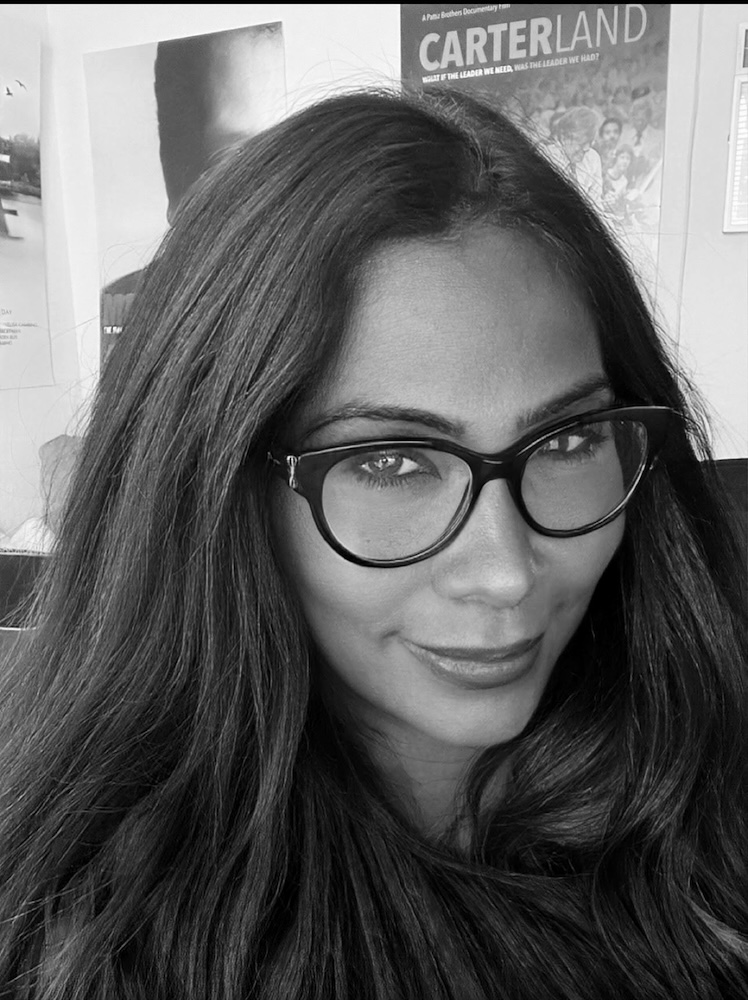
Auburn Avenue Films focuses on entertainment that promotes positive social change. Jackson and the company have become a “go to” curator for content creation developed out of Georgia on a path into Hollywood, with such titles as Welcome to Pine Lake, CARTERLAND, Counting The Ballots, and the award-winning feature length documentary, Maynard, about the mayor and the role he played in how Atlanta and other urban cities became largely populated by African Americans. Jackson also wrote a screenplay adaptation for 30 Days a Black Man: The Forgotten Story That Exposed the Jim Crow South.
Jackson is also the screenwriter of Napa Ever After, an original Hallmark Channel Mahogany Movie, about a high-powered attorney who inherits her estranged grandmother’s winery and, in the process of renovating the vineyard, learns about the grandmother she hardly knew and opens herself up to love with a handsome local man. This is the first Mahogany movie representing a new content initiative and brand extension for Hallmark Channel, which is an outgrowth of the company’s line of African American cards established 34 years ago. The movie features an all Black leading cast as well as a Black creative leadership team behind the scenes.
Jackson has taught 52 classes in Screenwriting and other filmmaking at UCSB and also lectures in Documentary Filmmaking, Screenwriting, and Creative Writing for the theater and English departments at Westmont College. She quickly immersed herself in the community, and has served on nonprofit boards and volunteers with several organizations in town.
Q: Can you share about your journey and how it led to where you are today? What in your upbringing mattered the most in forming who you are as an adult, and the values you live by?
Wendy Eley Jackson: I grew up in southwest Atlanta, which I am quite proud of. My mom passed when I was 12 when I was starting seventh grade. My father was a pilot for the Federal Aviation Administration, so he was gone a lot. It was the first time I had the experience that love and giving has no racial or ethnicity boundaries, and doesn’t care who you choose to love or what God you pray to. It’s about humanity. I went to a desegregated school, a majority white on the opposite side of town, where I was bused from the south side of town. But all these people who didn’t really know my mother came together to make sure that my dad and I would be taken care of. Everything from meals to making sure that my life didn’t change. I was an ice skater, I took ballet, I played violin and piano. I was a cheerleader at school. My life was very full as my dad would say, and it didn’t change until I wanted it to.
So I recognized at an early juncture that the biggest gift that a person can give you is their time. I had these great role models, and the gift of time became my first understanding of what philanthropy is. As I got older, of course, I learned that philanthropy can also be the gift of resources or the ability to connect dots for resources to accomplish a mission or a goal.
There’s another thing about growing up in the American South in the seventies, the first generation post-civil rights in the birthplace and home of John Wesley Dobson, the mentor to Martin Luther King Jr. My understanding of human rights, civil rights, was skewed because since the time I can remember, Atlanta had always been run specifically by Black people. We had a Black mayor – who much later in life would become my father-in-law – we had Black city council members, Black teachers and principals, Black pharmacists, doctors, lawyers, and engineers. I did not feel the starkness of poor Black people from broken homes. It just didn’t exist for me. It was only later that I came to understand racial disparity.
Q: When did that happen?
A: I had an English teacher at UC Berkeley and he’d assigned a rhetorical analysis paper on John Milton’s “Paradise Lost.” He told me that there was scientific proof to say that Black people didn’t have the aptitude to be able to comprehend things like Old English or understand what Milton was saying. What?! I’m from the civil rights capital of the world and you want to say that to me!? It was at that moment that I realized what my dad and relatives had talked about, someone trying to put you down, disparage or marginalize you, disenfranchise you, treat you like you were a number who was only there because of affirmative action. Well, we don’t need affirmative action if you just did the right thing in the first place! That’s the first time I understood that the whole world didn’t evolve when Atlanta evolved. Other places were still playing catch up.
Q: You went into screenwriting fresh out of Berkeley. What was the draw for you?
A: I was always aware that storytelling has an unparalleled power to change how people live and the lens through which they see humanity. Screenwriting is storytelling in a visual medium and it lets me create the world in whatever genre and I can populate those stories. I can choose to tell a story that can uplift and inspire, or creep people out, or make people laugh. It’s how people learn about my community. Because if you didn’t grow up in an urban environment, the only real understanding you had about Black people is what Norman Lear showed you with The Jeffersons or Good Times. And then later The Cosby Show gave you a different world – Blacks as educated people, just regular people. They created the story and focused the messaging. Through screenwriting, you are able to change the way people feel. The films we make now are very targeted to resonate in a way that creates change.
Q: Can you say a little more about that aspect?
A: In a nutshell, I start off by creating very character-driven storylines with complex protagonists and powerful transformation arcs. I personalize larger issues by using humanizing microcosms of society, and creating conflict and moral dilemmas as a reflection of social issues, whether it’s systemic conflict, societal structures or institutional problems of inequality, racism or environmental degradation, for example. When you watch this person undergo transformation, whether it’s personal, political, or ideological, it mirrors broader social issues and forces your audience to confront the ethical questions around them.
Q: I am imagining that teaching these techniques and skills as a lecturer at UCSB is a form of giving back, or rather paying it forward.
A: Completely. The way I see it is that I’m seeding a student whose harvest will look very similar to what I planted, and hopefully they’ll use the skills and the knowledge to create the stories and have the impact they want to have. I spend an extra 10 to 20 hours a week doing independent studies with students that need me as part of giving back just as I hope a professor would do with my child. Sometimes those meetings feel like a therapy session because these kids are going through a lot and they need someone to listen or help them figure out how to take the madness of their past and turn it into a compelling story that can serve as a change agent later.
Q: Zooming out, what do you see as the role of philanthropy in filmmaking?
A: Philanthropy really does play a significant role, particularly in supporting films that may not have access to traditional funding sources due to their subject matter or even the target audience. So philanthropic contributions can come from individuals, foundations, nonprofits to have a role in advancing underrepresented voices. The funding helps elevate stories from those communities, including women, people of color, and other marginalized groups. It’s particularly important for emerging filmmakers to give them the opportunity to tell their stories and launch their careers. Especially when it’s really hard to come by traditional funding when you are emerging. You can even be innovative with film distribution, because philanthropy can have distribution in alternative channels like community screenings or online platforms, collaborations with other educational institutions, and you can do hybrid platforms. I believe philanthropy goes a long way in preserving cultural heritage. And for those in the tech space, virtual reality, augmented reality, and artificial intelligence all allow us to tell stories in effective ways.
Q: Flipping the script, if you will, how should nonprofits be utilizing storytelling to be more effective?
A: It really does help to humanize your issue, because it’s really about engaging emotions as you communicate the nonprofit’s mission to have a much greater impact. Real life testimonials, and showcasing firsthand accounts from beneficiaries of volunteers, create authenticity. It provides examples of the nonprofit’s work, not just abstract statistics. You can balance hope and urgency. It becomes a clarion call to get people to lean in and want to give.
It doesn’t have to be anything as involved as a movie or a TV show. Short content with a real story can create that call to action, tailored to reflect the values and the interests of the stakeholders, who are often motivated by different factors. A potential donor might respond to stories that emphasize the nonprofit’s financial stewardship and the impact per dollar, while others might be inspired by stories of personal transformation and community engagement.
Q: Can you share about your other philanthropic efforts?
A: I’m a member of the NAACP. I’m a member of The Links, Incorporated [an international nonprofit volunteer service organization committed to enriching, sustaining, and ensuring the culture and economic survival of African Americans]. I spend a lot of time with my former students after they graduate using all of my resources over almost 40 years to help them get their first jobs. Sometimes I buy them the suit or dress that they need to go to interviews if they don’t have the resources. I’ve just tenured off the board of the Santa Barbara Women’s Political Committee. I’m part of the Central Coast Riviera Roses, a small club of African American women that just started, who are looking to connect and do good in this community as well as address the needs of their children. At Christmas, we give a lot of money and our time and talents to the Cottage Children’s Medical Center, where they’ve partnered with St. Jude to make a huge difference.
It’s what I was brought up to do. If you are in the position to help someone else, you respond to that need. If you have the ability to do something for your community, and you have the resources, then you move into that really quickly. Even when I was in college, the little bit of money I made from working at Video Mania in Oakland, I would give one-third to a charitable organization – my church, or Feed the Children. And the truth is I have never experienced fulfillment with anything else in my life as much as I do with giving.
Q: Do you have any final thoughts on wealth, philanthropy, and giving back?
A: Something I’ve noticed here that I had not experienced anywhere else is how many people are willing to be involved with philanthropic efforts to improve the community. It’s been quite refreshing. I’m leaning in and learning from some of the best people, the best women I have ever known.
